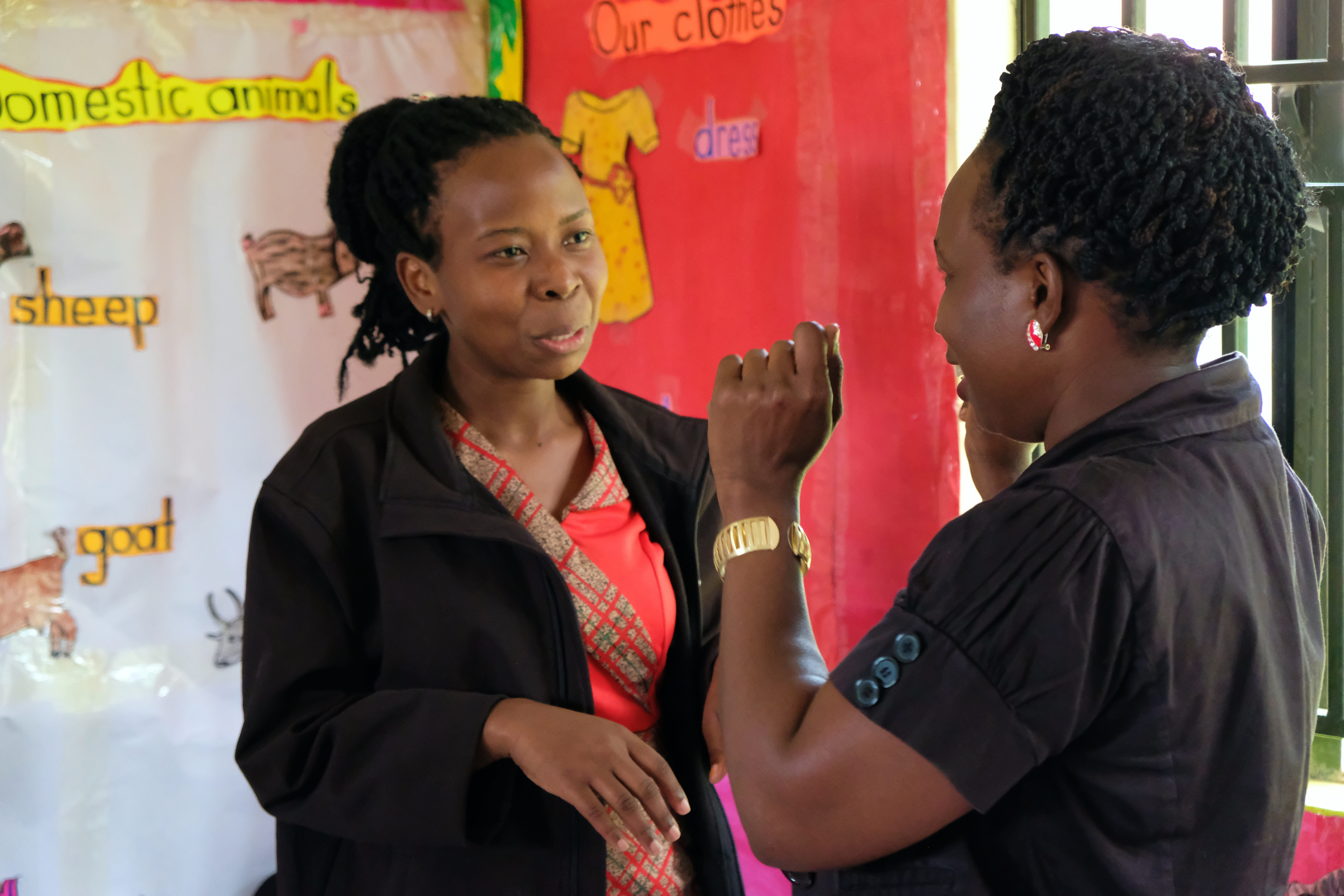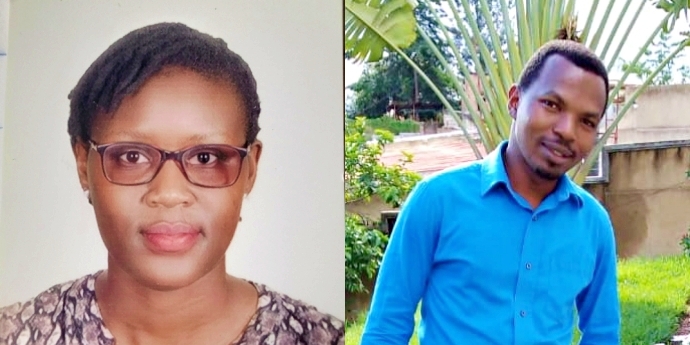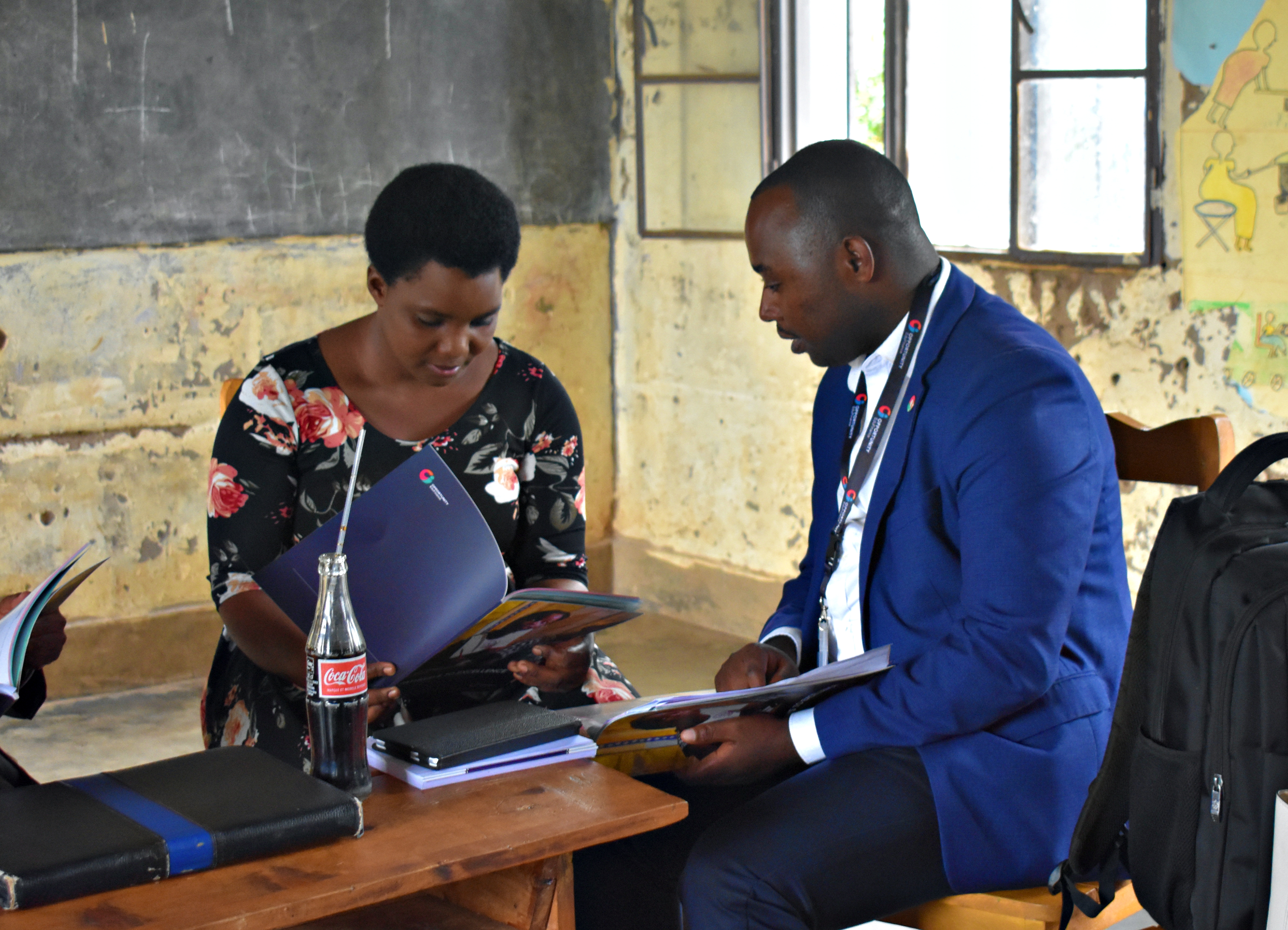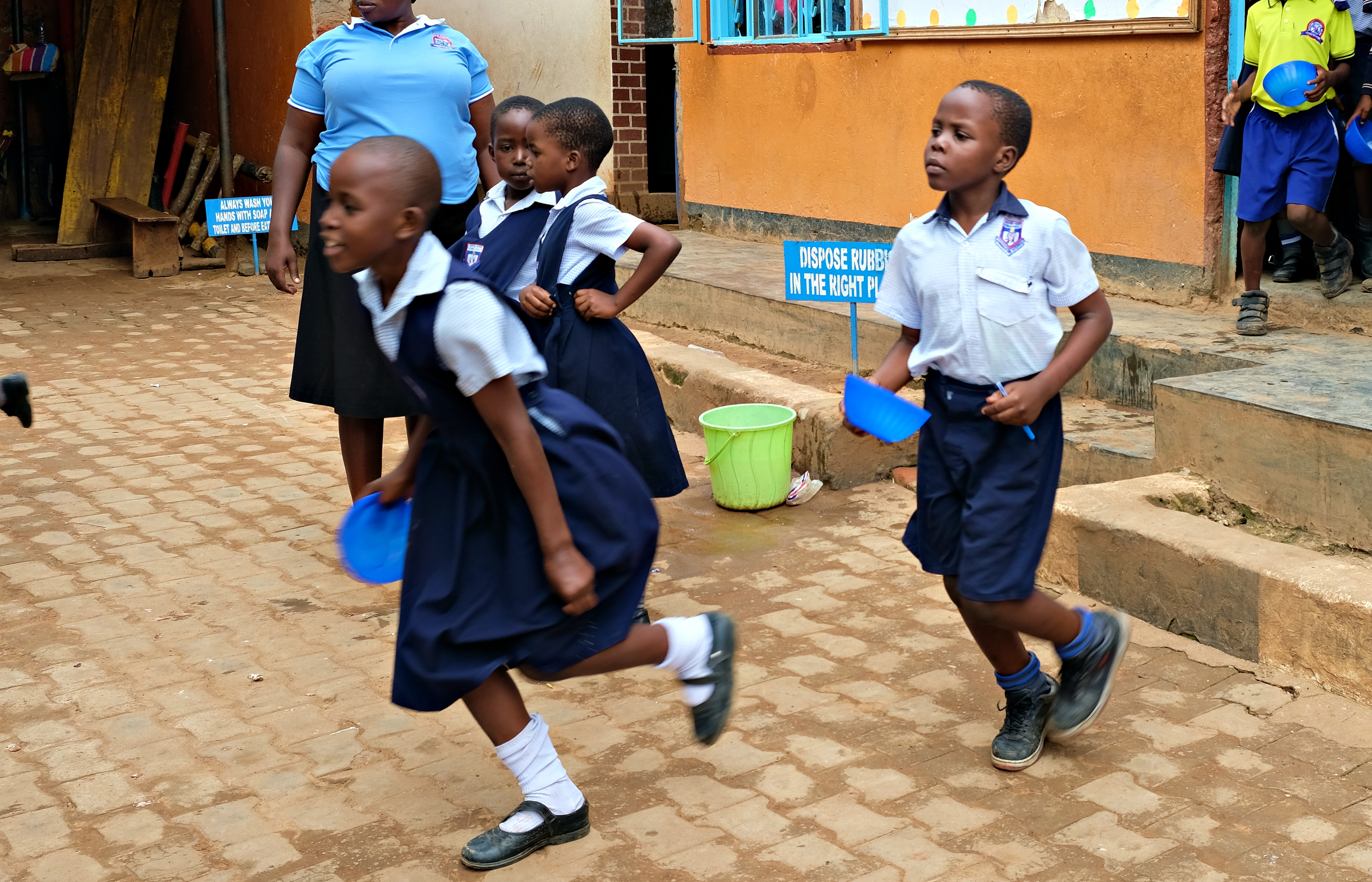The ‘Power’ behind our Data Collection: Meet some of our expert M&E Team

A vital part of Opportunity EduFinance’s work is carried out by our expert team of Monitoring and Evaluation Associates and Specialists (M&E). Each local M&E team visits schools in our EduQuality program to interview parents, students, teachers and school leaders. Their skill in collecting complex data allows EduFinance to gain detailed insights into how our programme is working, any needed changes, and what challenges and opportunities there are to make a greater impact on education access and quality. Analysis and learnings using this data is published in Key Insight pieces and research studies available through our online publications section.
To learn more about what it takes to do quality primary data collection, we spoke with two of our M&E team members. Ivy Achom works in Uganda alongside an M&E team of six, where she mainly focusses on East and North Uganda. Innocent Mushimiyimana is currently our only Rwanda M&E Specialist and covers the whole country, where he has met with 90% of the EduQuality Rwanda schools to date.

What do you enjoy about being an M&E specialist?
Innocent: It is really nice when you meet people who are happy. I enjoy my work, and what I enjoy the most is when I do assessments and go to grassroots sites. I enjoy looking at what Opportunity EduFinance is implementing and can see how powerful the program is for empowering schools. I receive concerns from stakeholders as well as hearing about how it has been improving quality. The school leaders say that they are empowered by the trainings that they get. It is so nice when you meet people who are happy with what the program is doing for them. It is building the human resource of the country.
Ivy: My passion to get into the field was for a chance to work in the education sector. It was my plan to get into M&E right from school. Working with Opportunity EduFinance has broadened my knowledge in the field of education and understanding the high levels of illiteracy.
The technology that EduQuality has given the schools is really good. School leaders can easily access e-learning platforms and so many have embraced it and are really happy with the materials. Many schools say they want EduQuality ‘to empower us on a larger scale so that we can help the learners even more.’ I enjoy my work because as I am assessing these schools, I see improvements. I see the outcomes are really good and I value that I am contributing to the productive work of the organisation.
It is exciting that school leaders are always busy doing so many activities. The time they give me is a great sacrifice. - Innocent
What is your approach to making your interviewee feel comfortable with you and the survey?
Ivy: Before I visit any stakeholders, I make sure to introduce myself on a call so that when we get to a school they know me already. When I meet them for the first time I focus on motivating conversations and build a rapport so they are comfortable. I keep the relationship going continually by following up and checking in with them on social media to see how the school is doing. After this you find that the next interview is better than the first one.
Innocent: It is exciting that school leaders are always busy doing so many activities. The time they give me is a great sacrifice. When I started I was like a stranger – I had to first use the different Education Specialists who are known in the school. They are well known and give them warning so they know that I am coming. Now the schools all know me. The friendship that I built before is still there and I can just go ahead – they have so many tasks to handle so I let them know my program and planned approach in advance so they can prepare and include me in their schedule.

Is there anything that has been surprising to you while conducting this M&E work?
Ivy: I was surprised how easy it was to access the school proprietors even though they are so busy running schools. They would dedicate time and make sure they are available as they see it as important for the development of the school. Teachers are always welcoming, but also they often do not like to be interviewed or asked too many questions. In most schools they have shown interest because they want to build themselves.
Innocent: There are many surprises. I remember when I did school profiles and assessments with parents, teachers, school leaders, and students I found that many people from different professions had heard of Opportunity EduFinance and knew our program already. With the kids’ questionnaire answers I can see how they are really in need of the education program. We have a long journey to walk for our targets – the students are really in need. There is a lot to do.
How do you decide the best way to handle complex questions as you listen to the interviewee?
Ivy: With some questions people are very hesitant to answer, in particular questions about finances are often difficult. Once they get comfortable with me, I take time and explain how the questions will help them find new ideas and this makes them interested. I use direct questions to ask them from their point of view about a range of issues and then probe further. I tell them in advance what I am going to ask, which gives them a chance to prepare their answers.
Innocent: To some extent it’s tricky. We need to have knowledge so that we are ahead and can prepare. The training and knowledge from the team supports us to do this in different ways. I have focus group discussions with some stakeholders in the school. Sometimes I find two different parents answers are contradicting each other which can be an issue. In this case I get information from other stakeholders to see whose perspective seems to be most accurate. I have to go beyond the information I collect and speak to more sources. I do this to make sure that what I’m providing to the M&E team is correct and accurate. With qualitative data I use different strategies in the field to observe more of what is in the school so that I have all the information – my eyes need to be open so that I can gain more knowledge about the school.
How has data collection been different in the last year? How has it been shifting to phone data collection?
Innocent: It seemed like we were well planned strategically for something like this pandemic. Our reporting system was good as we do not use paper data – we already had a good system of online data and training. I did many surveys during the pandemic as telephonic surveys. We were more creative in this time and also published three unique surveys in 2020.
Ivy: I continued to engage with school leaders so they knew that we were still here. We couldn’t reach out to all schools as so many people were affected, and some staff had to leave schools to their villages and were not online. For the ones I could contact online I got the data that I needed but it was minimal and brief. We could not explain at a broader range because of limited time on the phone. Since lockdown has been lifted data collection is much better because now I am getting face-to-face interactions and it’s much easier to get information in-person.
M&E Specialists from all countries come together and contribute ideas. We all participate by giving our opinions which have really been taken into consideration. - Ivy
What does training in the M&E Team look like?
Innocent: When I started in 2018, I travelled to Uganda for an induction week and met fellow team members. We have had a range of online trainings on different tools, we worked with Uganda, Tanzania and Rwanda in these sessions. In the last two weeks we have had more in-depth trainings in particular on the EduQuality programme.
Ivy: I really benefitted from the tools Dr. Anna Ermakova shared with us. These included personal observational tools, school profile, and quality and behaviour reports. I appreciate that we are working hand in hand through the Collect [Atlan] system. We have trainings where we look at how we can make certain questions easier for the audience we are in touch with. M&E Specialists from all countries come together and contribute ideas. We all participate by giving our opinions which have really been taken into consideration.
We have met some teams in person – I have mainly met the team in Kenya. I would love to meet more team members in person and see how they work in other countries. The overall trainings with Scott Sheridan help us to expand our skills. I know we can use them in this role and also that if we work somewhere else we can use this knowledge to establish how to do things better. I know that everyone in this team thinks about each and every person, and that every voice is heard.

Anyuru Ivy Achom (Uganda) and Innocent Mushimiyimana (Rwanda) are Opportunity EduFinance Monitoring and Evaluation Specialists that engage with school leaders, teachers, parents and students in the EduQuality program to collect data through interviews, focus groups and observations, and support the EduFinance Monitoring, Evaluation & Learning agenda.